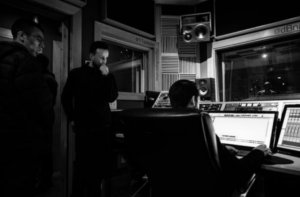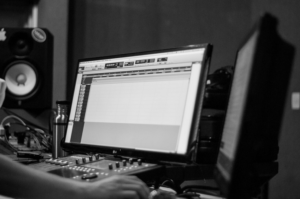
Things Not to Do as a Mastering Engineer
A mastering engineer is a person who takes music and turns it into a finished product that can be played on different devices. They work with many aspects of the production process, such as sound engineering, audio editing and mixing, equalization (EQ), compression, limiting, and noise reduction. When you think of the top don’ts for mastering engineers, what comes to mind? Here are several things of mixing mastering engineer what not to do if you want to be successful in this profession!
Don’t Forget to Equalize
 A mastering engineer need not equalize (EQ) an entire mix before mastering it. Mastering engineers use EQ to compensate for problems that may have occurred during recording or mixing, especially if they are working with older recordings that were not recorded in a studio.
A mastering engineer need not equalize (EQ) an entire mix before mastering it. Mastering engineers use EQ to compensate for problems that may have occurred during recording or mixing, especially if they are working with older recordings that were not recorded in a studio.
If the producer wants changes made to their music after it is mastered, another engineer can go back and apply more EQ to the mix.
If you are thinking about working as a mastering engineer, here is what not to do! You should never open another application while using your audio software. If you receive an email or allow other pop-ups to appear on your screen during playback, it can cause errors in timing for which there may be no fix.
Don’t Forget About Your Metadata
Metadata is an important aspect when working with large-scale files like streaming audio. You should check to make sure that all of your metadata is complete and correct before the file goes onto the internet! This information helps search engines find you, which can boost sales of your music.
Don’t Forget About Your Mixes
Sometimes a mastering engineer will receive mixes that they need to master without any changes made. If you are receiving mixes where the levels are already set to 0dB, it is best not to make any changes.
Don’t Ignore the Loudness War
 Want to know what not to do as a mastering engineer? It is vital that you avoid ignoring the loudness war! If you are using digital audio software, there may be options for normalizing audio.
Want to know what not to do as a mastering engineer? It is vital that you avoid ignoring the loudness war! If you are using digital audio software, there may be options for normalizing audio.
You can use these options to boost the loudness of a recording without affecting its dynamic range or quality, but be careful! If you boost your music too much, it will degrade in terms of sound quality and lose some punch. If you want to be successful in this profession, do not forget about your reference CDs.
You will need them when sending off a project for duplication or adding songs into online music stores. Make sure you have CDs to send along with the files. If you want to succeed in this profession, make sure you do not open another application that creates a loud war when working with your clients.
Don’t Ignore Your Clients
When working as a mastering engineer, it is crucial that you don’t ignore your clients. When they come in for their session or call while you are on another line, make sure you prioritize them and get back to them at your earliest convenience! They may be able to help you with suggestions if they are familiar with the project. Now that you know all of the don’ts, you will become an even better mastering engineer than you were before!

